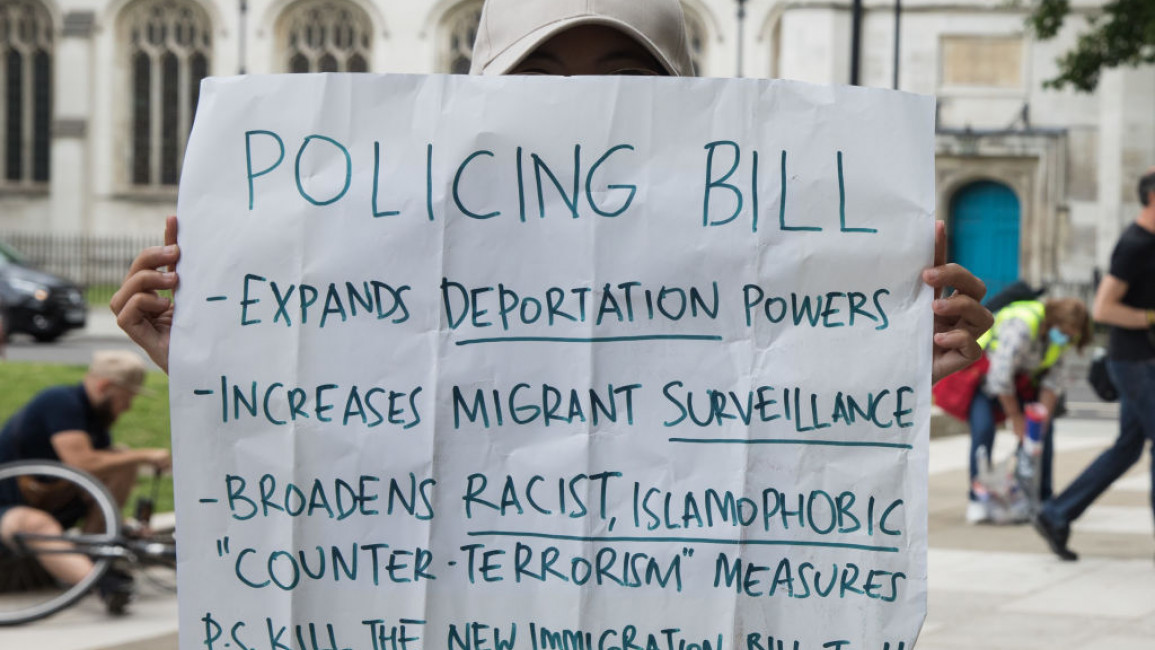
Reminder: Bigotry against Muslims is why Islamophobia awareness month exists in the first place
As Islamophobia Awareness Month (IAM) arrives, we are once again invited to reflect on the current reality of Muslims in the UK. For many of us, the daunting realisation that not much has changed since last year’s campaign has already set in.
It feels like every 12 months we go through the same routine: posters, exhibitions, statements by politicians, and official events organised by Muslim institutions, all demonstrating that racism against Muslims continues to rise. Yet, despite all of this, the situation only gets worse.
In this context, it would be easy to give in to the feeling of despair or even to feel totally hopeless about contributions to IAM having any impact at all. However, while the month should be used for collective contemplations over the current state of Islamophobia in the UK, it should also be taken as an opportunity to review what is wrong with the responses to the ongoing rise in violence, hate speech, and laws targeted at Muslims. It is only in doing so that we can disturb monotonous, often state-legitimised exercises, which allow politicians and so-called community leaders to act out their supposed concern, but in the end, really do not make any impact.
"Putting forward a clear and uncompromising strategy, which mobilises Muslim communities, unions, and civil liberty organisations against Islamophobia in all its forms, is especially significant this year"
Putting forward a clear and uncompromising strategy, which mobilises Muslim communities, unions, and civil liberty organisations against Islamophobia in all its forms, is especially significant this year – given the IAM events will also take place in the immediate aftermath of the 20th anniversary of the so-called War on Terror. It will, therefore, require seriously addressing how the British state continues to legitimise and justify the targeting of the 3.4 million Muslims at home, but also its role in murdering, occupying, and torturing countless more around the world, under the guise of fighting terrorism.
Even if we only look back at the last months, there are more than enough urgent issues to focus on in the fight against Islamophobia. For example, in May, the former commissioner for the Equality and Human Rights Commission, Professor Swaran Singh, released his 51-page report on discrimination within the Tory party. Out of a total of 727 discriminatory incidents that took place between the beginning of 2015 to the end of 2020, around two-thirds involved Islamophobia. Singh noted that: "Judging by the extent of complaints and findings of misconduct by the party itself that relates to anti-Muslim words and conduct, anti-Muslim sentiment remains a problem within the party".
The recommendations put forward by the report are expected to lead to proposals this month, over how the Conservatives will deal with complaints of discrimination in future. We certainly should not hold our breath over what this will mean on the ground for Muslims in Britain.
Lest we forget, the party is led by a man who has a long documented history of reactionary views about Muslims and Islam, while the organisation itself has been an active supporter and advocate for discriminatory policies, ranging from Prevent to schedule 7, as well as the wars in Iraq, Afghanistan, and Yemen – to name but a few.
However, whatever superficial, PR focused plans the Tories will present to the public, their announcement will also be an opportunity to put forward demands for a more fundamental change and have them discussed in the public domain.
Central to this effort should be the call to dismantle so-called counter-extremism policies and practices such as the Prevent strategy, which have institutionalised Islamophobia in British society and normalised the rolling back of civil liberties.
The last twenty years of Islamophobic policies under multiple governments have included the repression of dissenting voices, and the increased surveillance of Muslims. The Prevent agenda has aggressively sought to silence those critiquing government policies, at home and abroad, across the public sector.
It has monitored school children and university students and targeted them because of what they say, what they wear, where they pray and who they associate with. It has routinely been mobilised to shut down political events, profiled public speakers, and criminalised activism – especially when related to Islamophobia, Palestine and the environment. From hospitals and GP surgeries to social services, airports, and nurseries, the counter-extremism web has reached every corner of society.
Despite criticism from education and trade unions, civil liberties groups, journalists, lawyers, the Royal College of Psychiatrists and even UN officials, these policies have only continued to be strengthened over time.
The government's targeting of Muslims was not limited to overtly political spaces either. It has deployed institutions like the Charity Commission to reinforce its policing and disruption of activities. Just last week, for example, a two-year-long investigation of Human Aid UK by the CC finally came to an end. After some HAUK aid workers were stopped in 2019 by border police, under Schedule 7 of the counter-terrorism Act (2008), £9,200 were taken from the Muslim charity. The funds were intended to support people in Gaza who continue to face an Israeli blockade, and a worsening humanitarian crisis caused by the occupier’s repeated military incursions.
The money was returned almost a year after being confiscated and the Charity Commission concluded that "no further action" was required.
Human Aid stated that they faced "institutional Islamophobia" throughout the process, which has taken up vital resources that could have otherwise been used to support the poor and oppressed across the globe. Two years of time, money and energy put towards investigating a charity that was not involved in any illegal activity seems pretty wasteful. However, this is the very logic of the entire political project of the "War on Terror".
"By stigmatising an entire community, successive governments have normalised the assault on political freedoms across the board and turned millions of British citizens and residents into potential suspects"
As academic Arun Kundnani, wrote in his acclaimed book The Muslims are Coming!: Islamophobia, Extremism and the Domestic War on Terror:
"The possibility, rather than the fact, of surveillance is enough to generate fear, anxiety, and informal pressures to conform, to downplay dissenting opinions, to declare one's absolute loyalty. Thus an enforced culture of self-censorship emerges in communities that used to express their political opinions freely."
Targeting activists, humanitarian workers, or even school children does little to 'fight terrorism' as the last few days have once again demonstrated. What it does do, is create a climate of fear, suspicion, and surveillance. By stigmatising an entire community, successive governments have normalised the assault on political freedoms across the board and turned millions of British citizens and residents into potential suspects.
IAM is, then, not only an opportunity to highlight ongoing anti-Muslim hatred. It is also a moment for all of us to say publicly, collectively, and defiantly that we have not been silenced. That we refuse to be intimidated. That our struggle continues. While those who oppress us, and those who continue to hope that our oppressors can be cajoled into changing their minds, will profess empty words of concern, IAM is our opportunity to remind them that despite 20 years of sustained repression, we are still here, fighting on.
Malia Bouattia is an activist, a former president of the National Union of Students, and co-founder of the Students not Suspects/Educators not Informants Network.
Follow her on Twitter: @MaliaBouattia
Have questions or comments? Email us at: editorial-english@alaraby.co.uk
Opinions expressed here are the author's own, and do not necessarily reflect those of her employer, or of The New Arab and its editorial board or staff.



